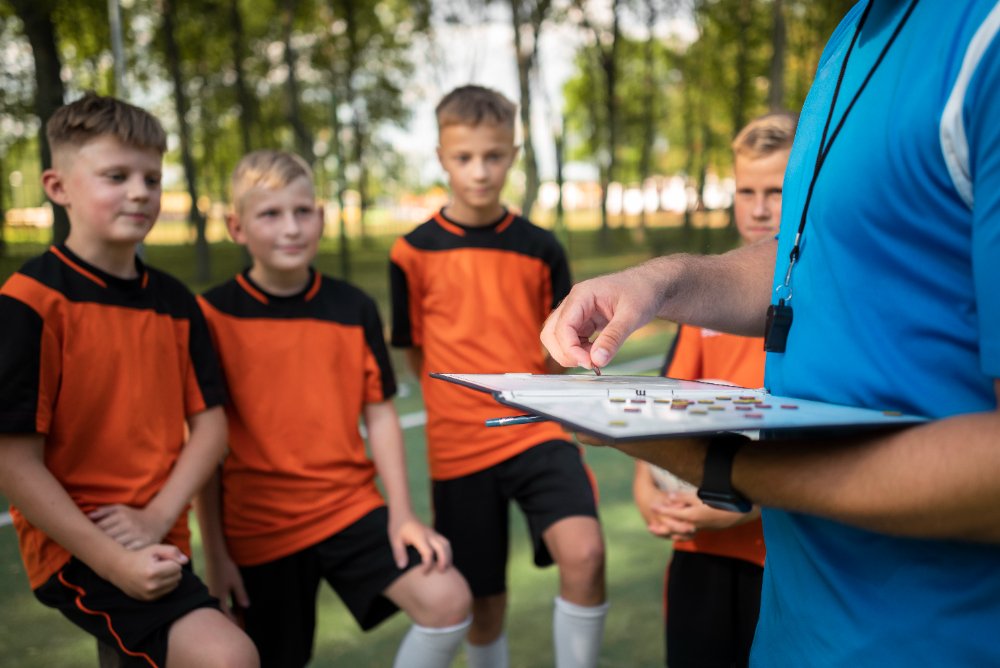The Importance of Sports in Youth Development:
Sports are more than just physical activities or games; they are powerful tools in shaping young people’s lives. They help improve physical health, boost mental well-being, foster emotional resilience, and promote social skills. Youth development is a comprehensive process, and sports play a pivotal role in it. This article will explore the importance of sports in youth development and the lasting impact sports have on young people’s lives.
Physical Health: Building a Foundation for Life
Strengthening Muscles and Bones
Sports promote the development of physical strength, enhancing muscle function and bone density. Playing sports helps children develop coordination and fine motor skills, which are crucial as they grow. Whether running, swimming, or playing team sports, youth gain the physical strength to support their bodies as they mature.
Reducing the Risk of Health Issues
In addition to improving strength, regular participation in sports helps prevent chronic health issues, including obesity and heart disease. With the increasing concern over childhood obesity, sports serve as a preventive measure, encouraging active lifestyles and combating sedentary habits that are prevalent among today’s youth.
Promoting Lifelong Healthy Habits
Youth who engage in sports are more likely to continue leading active lifestyles as they grow older. They develop an understanding of the importance of maintaining physical health, which sets them up for a lifetime of good fitness habits and better overall health.

Boosting Mental Health and Emotional Well-Being
Reducing Stress and Anxiety
Sports are proven to reduce stress levels by stimulating the release of endorphins, natural mood boosters. When youth engage in physical activity, they can experience reduced levels of anxiety and a greater sense of well-being, which helps them cope better with the pressures of school and life in general.
Building Emotional Resilience
Through the highs and lows of competition, sports teach youth emotional resilience. They learn how to cope with failure, deal with disappointment, and celebrate achievements with humility. These experiences foster emotional intelligence, helping them manage their emotions effectively in all aspects of life.
Increasing Confidence and Self-Worth
Accomplishing goals in sports gives youth a sense of achievement, which directly boosts their self-esteem. As they set and accomplish personal goals, whether small or large, they gain confidence that they can apply to other areas of life, such as academics and social situations.

Sports as a Catalyst for Academic Success
Improving Focus and Concentration
Youth involved in sports often exhibit better focus and concentration when it comes to academics. The mental discipline required to perform well in sports translates to improved cognitive abilities and better attention span in the classroom, leading to better academic performance.
Enhancing Time Management and Organization
Sports teach valuable time management skills as youth must balance their academic responsibilities with sports practices and competitions. This structure encourages youth to be more organized and disciplined, which positively impacts their approach to studying and completing assignments.
Strengthening Cognitive Skills
Regular physical activity improves brain function, particularly memory and cognitive skills. Studies show that athletes often have sharper focus, quicker thinking, and better problem-solving abilities, which can directly benefit their academic achievements.

Character Development: Cultivating Integrity and Discipline
Learning Discipline Through Routine
One of the most powerful lessons learned in sports is discipline. Athletes must follow routines, respect coaches, and adhere to rules. The practice of consistently working towards a goal teaches young people the value of self-control and hard work, which are essential traits for success in all areas of life.
Building Respect for Authority
In sports, youth learn to respect authority figures, including coaches, referees, and even teammates. This respect for authority carries over to other areas, such as school and home life, where young people learn the importance of following rules and respecting those in leadership positions.
Fostering Sportsmanship and Fair Play
Sportsmanship is a vital element of character development. Learning to handle victories gracefully and accept losses with dignity helps youth develop a strong sense of integrity and fair play. This respect for others, regardless of the outcome, contributes to a positive and supportive atmosphere, both on and off the field.

Enhancing Social Skills and Building Relationships
Learning Communication Skills
Sports provide an ideal environment for developing strong communication skills. Whether it’s calling for a pass, offering encouragement to a teammate, or giving feedback, sports require constant verbal and non-verbal communication. Youth involved in sports learn how to express themselves clearly and listen to others, skills that are essential for social success.
Promoting Teamwork and Cooperation
Team sports emphasize the value of teamwork, where youth learn to collaborate with others, share responsibility, and support one another. This promotes a sense of unity and community, teaching youth that success is not achieved alone but through collective effort.
Building Lifelong Friendships
Sports provide a setting where youth can form lasting friendships. Whether playing on the same team or competing against each other, young people develop bonds based on shared experiences. These relationships offer emotional support and create a strong network that extends beyond the field or court.

Leadership Skills: Shaping Future Leaders
Taking Responsibility and Leading by Example
Sports provide opportunities for youth to take on leadership roles, whether as team captains, mentors, or role models. Youth learn to guide their teammates, encourage positive behavior, and make decisions that benefit the team as a whole, building leadership qualities that will serve them well in the future.
Managing Conflict and Resolving Disagreements
In sports, disagreements and conflicts are inevitable. However, they provide valuable opportunities for conflict resolution. Through sports, youth learn to manage disputes respectfully and resolve differences constructively, teaching them important leadership skills that are applicable in both personal and professional settings.
Inspiring and Motivating Others
Leaders in sports are often tasked with inspiring others to push their limits and achieve more than they thought possible. This ability to motivate others and build morale is an essential trait for future leaders, whether in the workplace, community, or personal life.

Fostering a Lifelong Love for Physical Activity
Encouraging Consistent Exercise Habits
One of the key benefits of youth sports is the promotion of consistent physical activity. Youth involved in sports are more likely to continue participating in physical activities throughout their lives, leading to a greater emphasis on maintaining a healthy lifestyle long after they leave school.
Creating Positive Associations with Exercise
Sports help youth form positive associations with exercise by making it enjoyable and rewarding. These positive experiences help prevent sedentary behavior in the future and encourage youth to stay active, whether through recreational sports, fitness routines, or other activities.
Improving Quality of Life in Adulthood
As youth who participate in sports grow older, they are more likely to remain active and make exercise a regular part of their adult lives. This leads to numerous health benefits, such as maintaining a healthy weight, reducing the risk of chronic diseases, and enjoying a higher quality of life in adulthood.

Sports and Building a Sense of Achievement and Confidence
Setting and Achieving Goals
Sports offer an ideal environment for youth to set and work towards goals. Whether it’s scoring a goal, winning a match, or improving personal skills, youth experience the satisfaction of achievement through dedication and effort. This sense of accomplishment boosts their self-esteem and encourages them to set even higher goals in other areas of their lives.
Building Confidence Through Success
As young people experience success in sports, they grow in confidence. This confidence is not limited to sports; it extends to other areas of life, such as academics, relationships, and future career aspirations. The lessons learned in sports—perseverance, hard work, and resilience—help youth approach challenges with a positive mindset.
Empowering Youth to Believe in Their Potential
The positive reinforcement gained through sports empowers youth to believe in their abilities and take on new challenges. The confidence that develops from achieving goals in sports fuels their drive to succeed in other endeavors, promoting a lifelong belief in their potential.

Conclusion:
The importance of sports in youth development is undeniable. From promoting physical health and improving mental well-being to building character, leadership, and social skills, sports provide essential benefits for young people. Youth who participate in sports gain valuable life skills that will benefit them throughout their lives. By supporting youth in their pursuit of sports, we are not only helping them become physically fit but also nurturing the growth of resilient, confident, and successful individuals. The investment in sports is an investment in the future of our youth, ensuring they grow into well-rounded, capable adults.
Discover amazing information and unique finds on FuseBay! Don’t miss out—visit our website for exclusive articles and top-notch blogs tailored just for you!







